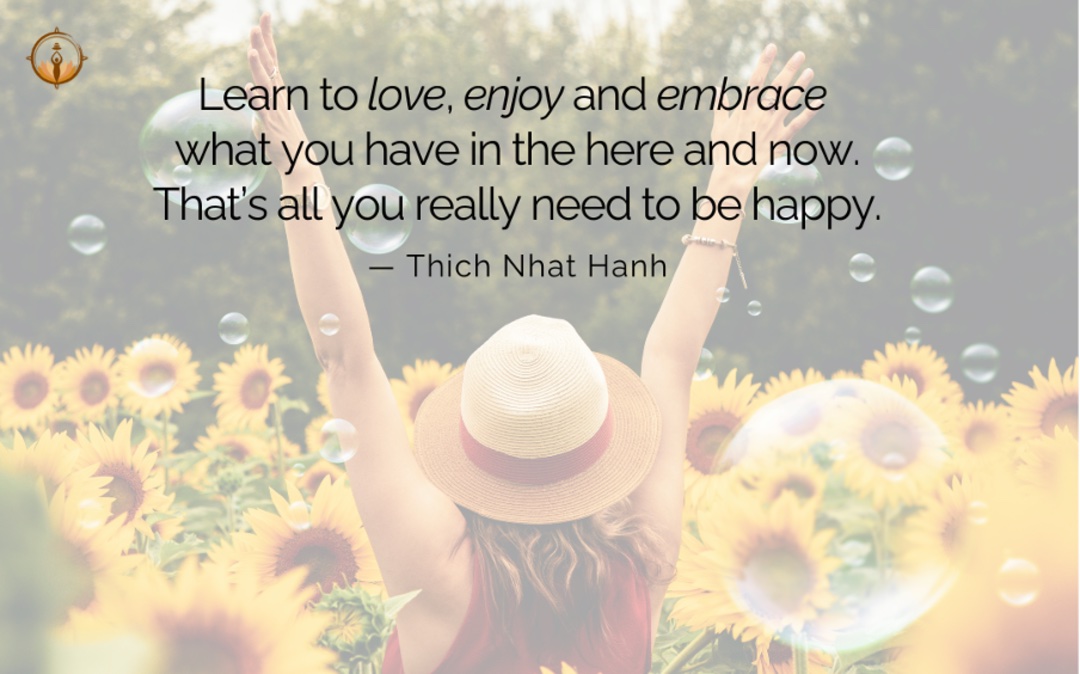Happiness is defined as a sense of being happy, content, and joyful. However, it encompasses so much more than just that. It is a state of feeling whole, of gratitude, of awareness.
This is not to say that we don’t have suffering and grief – we can’t dismiss those feelings, as situations / conflicts may arise that are out of our control. The art of cultivating happiness is recognising these emotions and suffering, understanding them, embracing them, and practising compassion for ourselves and others. (Read more on self-compassion in our previous blog: https://www.innercompasspsychotherapy.com/2023/11/04/the-importance-of-self-compassion/)
Happiness is also known to positively affect our health. There have been several experiments and trials that illustrate the correlation of being happier with increased physical health. (Sabatini, 2014; Kushlev et al., 2020)
So, how can we manifest and nourish happiness in our lives? Here are some tools you can use:
- Detach – It is easy to attach the concept of happiness to many things in life, and in that process to remove its true meaning. Many of us keep creating new metrics of ‘when we will be happy’. This could be when we achieve a new job, or when we find our significant other, or when we get the degree we want, or property, or a particular bank balance. It is healthy to have goals for ourselves and work towards achieving them, but these should be detached from our sense of happiness.
- Practice compassion – Negative emotions, such as grief, anger and envy, are inevitable as part of our human experience. However, we need to balance such emotions with positivity, and one of the primary ways of doing so is to practice compassion with ourselves and others. Being kind and having a gentler inner dialogue helps to grow our empathy and compassion.
- Being mindful – When was the last time you truly felt ‘present’? Perhaps it was on your birthday, or a concert, or a graduation ceremony. Mindfulness is about being in the present, even in the most mundane of moments. Being present when sipping on your morning tea, doing your household chores, and with every breath you take. When we bring focus to such moments, we become in tune with our reality. There is a sense of gratitude for being alive.
References:
Kushlev, K., Heintzelman, S. J., Lutes, L. D., Wirtz, D., Kanippayoor, J. M., Leitner, D., & Diener, E. (2020). Does happiness improve health? Evidence from a randomized controlled trial. Psychological Science, 31(7), 807-821.
Sabatini, F. (2014). The relationship between happiness and health: evidence from Italy. Social Science & Medicine, 114, 178-187.

